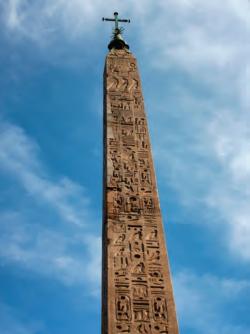Horsemeat Nightmare
Did you hear the joke about the beef burger that went into the pub to ask for a pint? “I can’t hear you,” complains the bartender. “Sorry” replies the burger, clutching his throat. “I’m a little horse.”
An amusing quip, perhaps, but a nightmare for many unsuspecting consumers in the United Kingdom and across Europe earlier this year. They woke up to the shocking realization that many of their trusty beef burgers were actually made from horse. And that was certainly no joke!
It was not just beef burgers. Lasagna, meatballs, shepherd’s pie and other ready-made meals were also found to contain varying percentages of horsemeat. It transpired that almost anyone could have inadvertently eaten le cheval.
Some did not see what the fuss was about. After all, why worry about a little horsemeat, when thousands of consumers across Europe—in France, Italy, Belgium, Holland and beyond—eat tons of it each year as part of their regular diet? British consumers, however—like Poles and many other Europeans—by and large do not eat horsemeat—and neither do they like being taken for a ride.
Officials quickly leapt in to reassure the public that this lapse presented no health risk, and was simply a matter of labeling. Others, however, were far less charitable, framing the issue as one of trust. If you cannot rely on supermarket food labels to tell you the truth, how can you trust them at all? If packagers are putting horsemeat in with our beef, what else might they be adding that we might not—yet—know about?
Shocked supermarkets and politicians quickly took the bit between their teeth, racing into action to resolve the horsemeat scandal. Thousands of meat products from one end of the food chain to the other were removed from sale and trashed. Supermarket shelves, schools, hospitals, social services and almost anyone with a catering company or processed food contract were purged of suspicious items.
At the same time, hapless supermarkets blamed the food-processing and packaging companies. These in turn blamed the meat storage suppliers, who blamed the abattoirs where the animals were slaughtered. And so, Britain blamed the French, who blamed the Romanians, who claimed they were innocent. Some called the UK Environment Minister incompetent for his handling of the crisis, forgetting that “competence” for the food industry had been transferred a decade earlier to Brussels and the European Union.
Lessons To Be Learned
One obvious lesson of the horsemeat scandal has been that EU regulation and oversight had been so weakened that the food supply sector was left wide open to fraud. Despite warnings issued by critics over the past two years, no tests for horsemeat had been conducted in the UK for more than a decade. Fearing a loss of credibility, as well as the political and potential health fallout, the EU and member governments moved swiftly to reassure the public and deal with the problem, the nub of which is simple.
Usually, if a beef product contains meat from another source—say, for example, pork—the label will tell you so, because the pork was added intentionally. The problem with the horsemeat was that it was not supposed to be there. So, how did it find its way into the packaged or processed items? Why did protective regulations prove ineffective? Where, in the ever more convoluted, globalized food chain on which modern food suppliers rely, did processes go awry? And, panic aside, how serious and widespread was the problem?
Thankfully, the overwhelming majority of items tested for horse DNA were found free from contamination. Only about 1 percent of the thousands of tested products have been found to be affected. However, some products claiming to be beef were found to be more than 60 percent—some were 100 percent—horsemeat. And the addition of the horsemeat, though not as common as some initially feared, appeared clearly to be deliberate action by some unscrupulous packagers in Eastern Europe.
What lessons can we learn from all of this? Aside from appreciating the many dreadful puns trotted out by commentators, we can see a serious side to the matter. The horsemeat scandal presents us with a cautionary tale of human nature in action. Human beings, unless they are operating within adequate restraints and regulations, will tend to cut corners to their own advantage. And, as long as consumers demand cheaper food, there will always be those willing to cut corners to satisfy that craving.
Certainly a degree of skepticism about mass-produced, cheap convenience foods—where the manufacturers may be especially tempted to cut corners to maximize profits—would not go amiss. Most health authorities would agree that we should purchase the highest quality food we can afford, and that as much as possible we should select fresh and unprocessed foods over heavily processed alternatives. When eating processed foods, in particular, we should be very careful to read the food labels—and ask others if we are not sure about the ingredients.
Biblical Guidance
It should be no surprise that the Bible also gives us some significant guidance about the food we consume—advice that should really make us think, as we put its words into practice, becoming more discerning about what we put into our mouths.
In Leviticus 11:1–23 and Deuteronomy 14:3–20, God lists foods to be avoided by anyone wanting to follow His revealed pattern of living. These chapters tell us that we should avoid eating the meat of animals that do not chew the cud and do not have cloven hoofs. That means no horsemeat in our diet! Nor should we eat pig, rabbit, camel, cat or dog.
God differentiates between the “clean” and the “unclean” for several reasons. One is that He wants those who follow Him to be different from the world around them (see Leviticus 11:44–47; Deuteronomy 14:2). And since He wants good things for His people, it should be no surprise that following His food laws is good for our health! And, no, these are not outmoded Old Testament laws; consider Matthew 5:17–19 in this regard. It is a measure of how far this world has drifted away from God that we think these instructions are no longer relevant for today and that it is OK to eat virtually everything. But we should learn that it is not OK.
In the meantime, as Britain comes to grips with the horsemeat scandal and measures are introduced that will prevent such a crisis being repeated, trust may slowly return. And, when it does, there may come a time when the cry of “Where’s the beef?” can categorically be answered honestly—and not with a sly whinny or grunt that might indicate the presence of something rather less wholesome!






